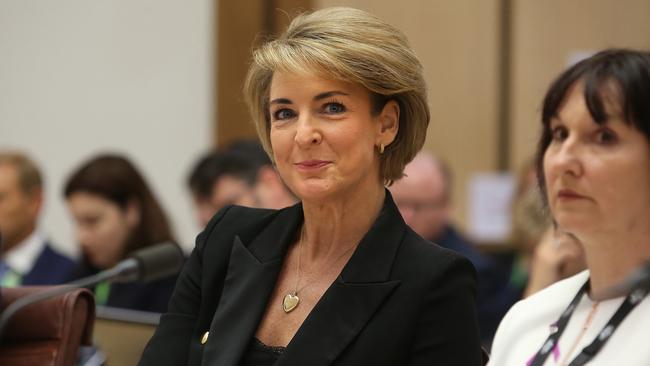
Thanks to government frontbencher Michaelia Cash and her threat last week to name female staffers in Opposition Leader Bill Shorten’s office about whom she had heard rumours, we have an insight into what would happen were she to establish her version of McCarthyism. Chairing the House of Amoral Activities Committee, perhaps? Take heed you strumpets, harlots, hussies, and other women of ill-repute, for your indictments will appear on the committee’s whiteboard, and you shall be named and shamed.
To describe Cash’s comments as the result of a brain snap or having dropped her bundle does not sufficiently describe her appalling judgment. She is guilty of being what could be termed “Michaeliavillian’’, a cynical political manoeuvre by an unscrupulous politician that, unlike its derivative, results in the humiliation of the schemer. Her outburst was spiteful, defensive, and amateurish. She has retracted her comments, but has resisted demands she apologise.
No doubt Shorten, not his staffers, was the ultimate target of Cash’s grubby imputations, but it is of little comfort to the women in his office that they were “only’’ collateral damage. Should Cash apologise to them and Shorten? The answer is largely subjective, and it depends on whether you see the distinction between an apology that is forced and one prompted by genuine remorse.
Apologies, at least among politicians, are a relatively recent way of formally ending a dispute. Historically, the preferred means of avenging an insult was to demand satisfaction in the form of a duel. This means of resolving a dispute was not confined to mere backbenchers. US Vice President Aaron Burr fatally shot the inaugural Secretary of the Treasury, Alexander Hamilton, in New Jersey in 1804. British prime minister William Pitt the Younger took part in a duel in 1798, as did one of his successors, the Duke of Wellington, in 1829. Fortunately, or perhaps unfortunately, Western politicians no longer observe the practice.
Rather than atone for bad behaviour, today’s forced apologies merely signal in many cases a transition from the overtly defensive phase to a passive-aggressive one. There are few better examples of this then the case of former Victoria Police chief commissioner Christine Nixon.
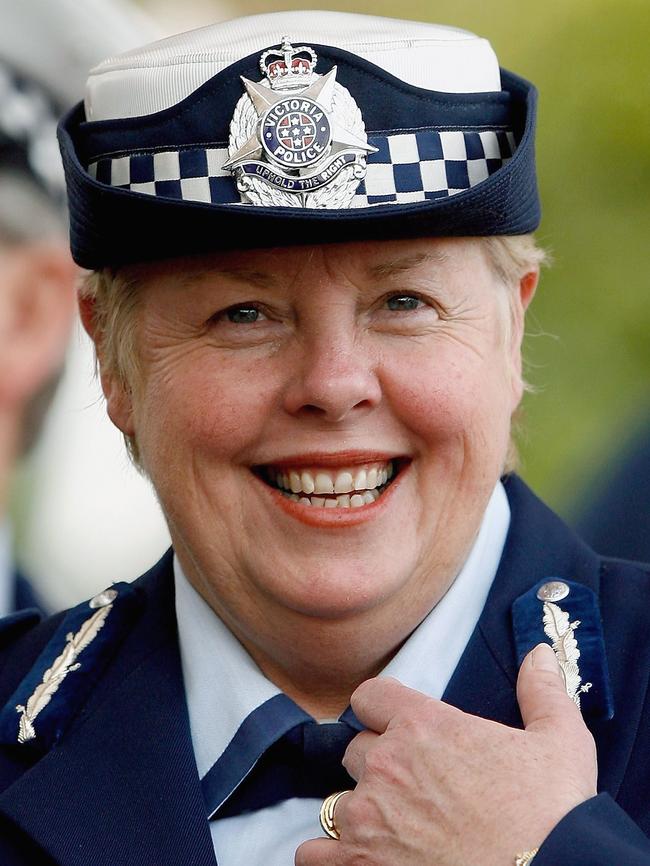
In 2008 she improperly accepted a luxury international flight/accommodation gift from Qantas, which she disingenuously insisted had been offered in the first instance to her husband, a former executive of the airline. Instructed by the then Office of Police Integrity to apologise for her actions, Nixon did so, and then immediately extended a middle finger to her critics. “I certainly think the issue is being blown out of proportion,” she said. “I understand it’s a significant issue, but I just think ... there are far more significant issues to deal with in our community than this one.” What could be a far more significant issue in the Victoria Police than the integrity of its chief commissioner?
Another form of the passive-aggressive apology is one which does not fully concede wrong was inflicted. Last November former independent MP Tony Windsor disparaged the former chair of the Australian Government’s Indigenous Advisory Council, Warren Mundine, tweeting that he had “made himself into a token aborigine as a means of making a living.” In the backlash that followed, Windsor apologised to Mundine for his disgraceful slur, yet was coy about his wrongdoing.
I have sent a message to Warren Mundine apologising for a tweet posted by me last night . If it has offended anyone I apologise . On rereading the tweet I can understand how it could be taken to offend .I have also deleted the tweet .
— Tony Windsor (@TonyHWindsor) November 28, 2017
“If it has offended anyone I apologise,” he tweeted. “On rereading the tweet I can understand how it could be taken to offend.” If?
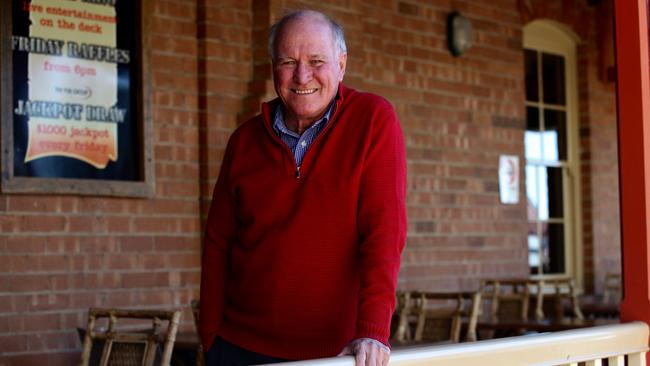
Then there is the apology orgy, and it goes like this. First, highlight a demographic in Australian history that suffered discrimination. Second, ensure that all the victims and perpetrators of said discrimination are long dead. Third, issue a public and sanctimonious apology for this discrimination to people who did not experience it when you yourself played no part in it. Does this sound like sheer lunacy? Only last year Victorian Premier Daniel Andrews apologised to the Chinese community for racist policies that their ancestors were subjected to during the Gold Rush, some 160 years ago.
If you think this could not get more Pythonesque, you might want to remember that these days it is customary for the victims to apologise to the bullies. During the same sex marriage saga last year Liberal MPs Tim Wilson and Andrew Hastie appeared on opposite sides in a light-hearted video commissioned by the Bible Society, which urged people to respectfully debate the issue while drinking a Coopers beer. The reaction was nothing short of hysterical. “Do you drink Coopers beer?,” tweeted gay parenting activist Rodney Chiang-Cruise, “Well don’t. They have exposed themselves as homo/transphobic f. ks,” he said. Inner-city pubs across Sydney and Melbourne announced a boycott of Coopers, and one publican even filmed himself pouring the remaining stock down a drain. Instead of telling these bullies what they could do with their boycott, the senior executives of Coopers issued a grovelling apology.
And if Canada’s Minister of Environment and Climate Change, Catherine McKenna, is any example, the purpose of an apology is to confirm one’s status as a complete and utter dill. Last November, McKenna announced via Twitter her congratulations to a new signatory to the Paris Agreement on Climate Change. Which country? Er, Syria, as it turns out, the climate of which is befouled by deadly chemical weapons employed in the country’s bloody civil war. “Clearly a mistake was made from my Dept twitter,” she later tweeted. “We’ve been clear that the murderous Assad regimen must end attacks against its people.” Not surprisingly, McKenna has since been dubbed ‘Climate Barbie’.
Lastly, there is the ‘It was all a mistake’ apology, aptly personified by ACT Legislative Assembly member Joy Burch. In 2013, the then Labor minister who held the education and women’s portfolios retweeted an image of federal minister Christopher Pyne and an accompanying description to the effect that he was as “c. t”. Birch, whose Twitter account had been active for four years at the time, claimed she had retweeted the offensive post by accident. “I haven’t finessed my social skills, my Twitter skills on this,” she lamely explained, adding that she had accepted a subsequent offer from the University of Canberra to attend a social media course.
Does this leave you feeling cynical about the value of a public apology? Shorten and his female staffers are right to feel offended about Cash’s slur, yet she has withdrawn her remarks, and has been severely embarrassed. She would be better off not to apologise rather than issue a mealy-mouthed one. As for those of you I have criticised in this column, I apologise if I have offended you. Actually, I don’t.


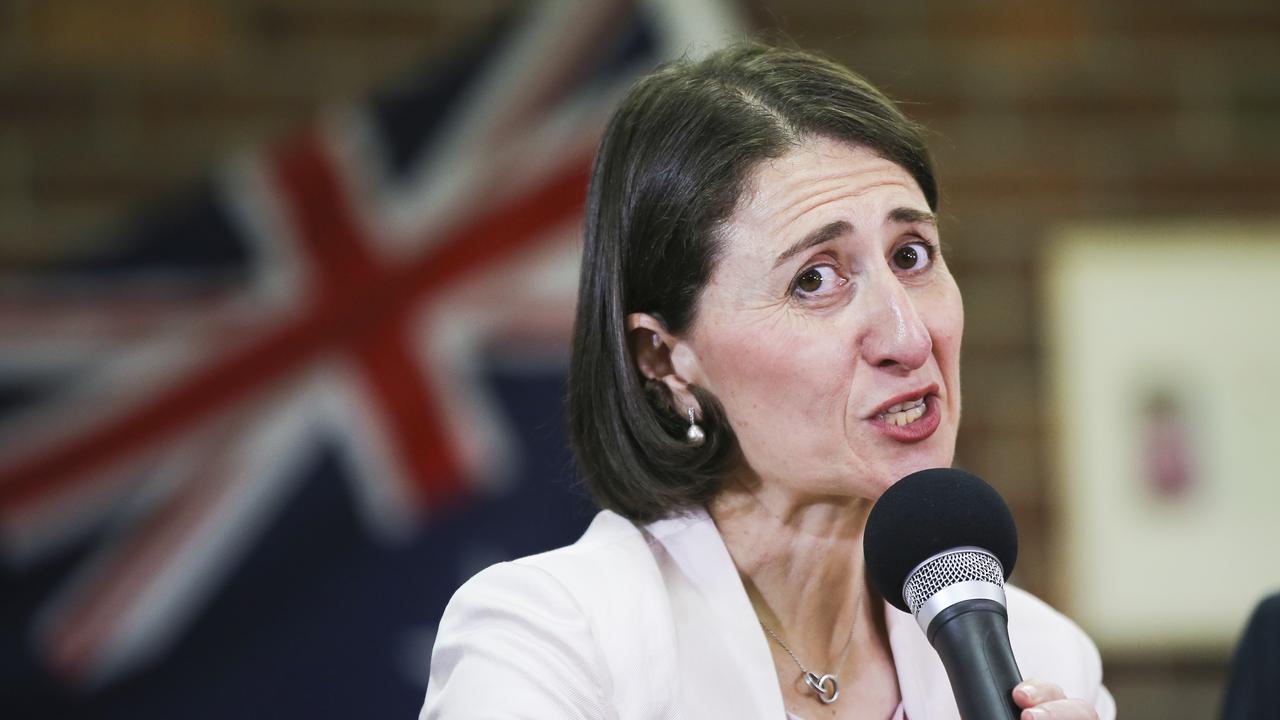
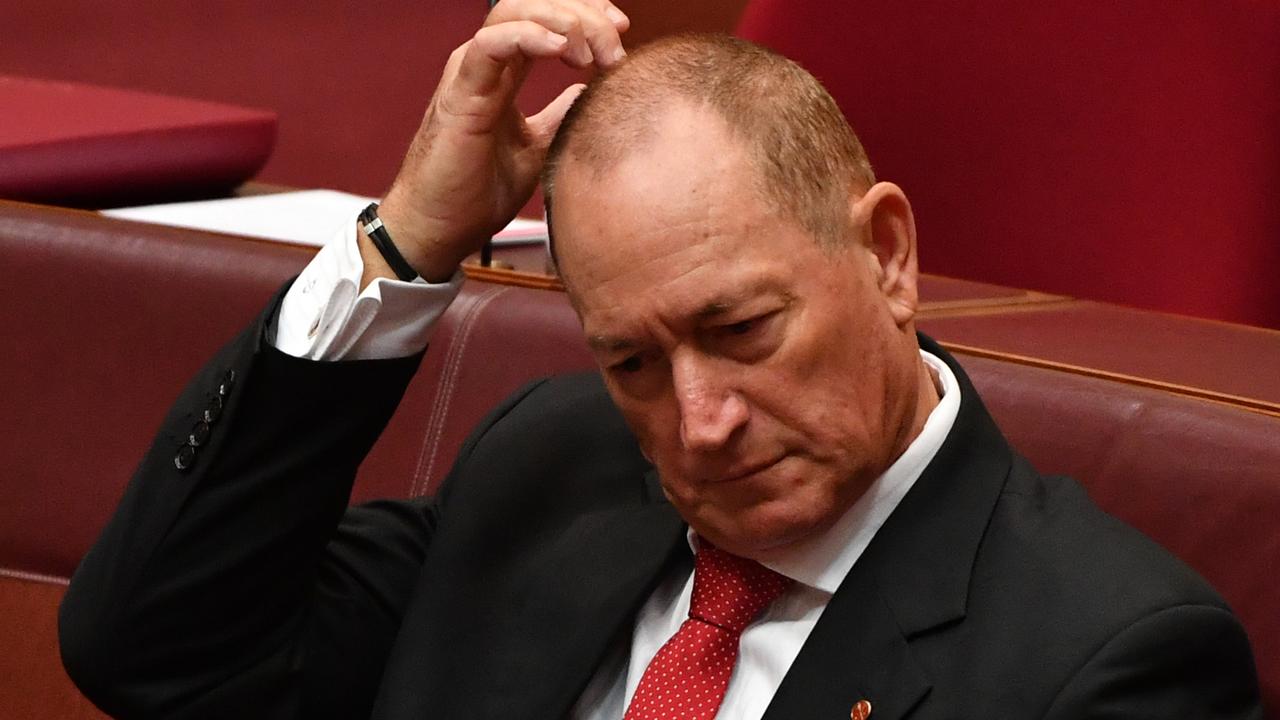
To join the conversation, please log in. Don't have an account? Register
Join the conversation, you are commenting as Logout